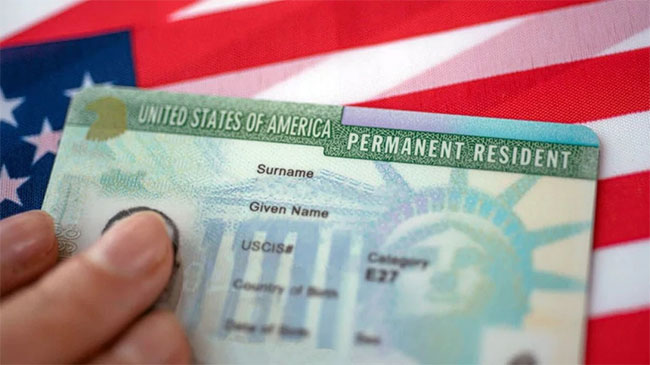Major Green Card change proposed: No PR if immigrants likely to become dependent on govt
November 19, 2025 09:41 am
The Trump administration on Monday proposed giving immigration officers authority to deny permanent residency to lawfully present immigrants who use Medicaid or other food and housing assistance programs, arguing that “government benefits should not incentivize immigration” and that immigrants should be “self-reliant.”
It’s a twist on the so-called public charge rule from Trump’s first term, which the Biden administration stopped enforcing in 2021 and rescinded in 2022.
The proposal Monday from the Homeland Security Department’s Citizenship and Immigration Services division would repeal the Biden administration’s 2022 rule. But instead of reviving the public charge rule from the first Trump term, the agency pledged to release guidance at an unspecified future date. That effectively would give more power to individual Citizenship and Immigration Services officers to make determinations about who they think is or could become a “public charge.”
While the U.S. has long imposed restrictions on immigrants considered a burden on taxpayers, the Trump administration was the first to designate public health insurance a form of welfare.
The Department of Homeland Security will accept public comment on the proposal to rescind the Biden rule over the next 30 days, and will review the feedback before issuing a final decision.
Some health policy experts and immigrant rights advocates are warning that the change, if it takes effect, will cause both individual suffering and negative population-wide effects.
They say the policy could burden already overwhelmed hospitals if immigrants skip preventive care because they lack health insurance and end up in the emergency room. They also predict it will make it harder to control both outbreaks of infectious diseases and chronic health conditions.
“Immigrants don’t live in isolation. Many of them live in mixed-status families,” said Adriana Cadena, executive director of the advocacy group Protecting Immigrant Families. “So out of fear of jeopardizing their immigration status, they’re avoiding accessing public benefits. We are already seeing a drop in patients attending appointments.”
The Trump administration estimated that the government would save $8.97 billion annually because people would drop out of Medicaid and other benefit programs due to the new policy — including “aliens as well as U.S. citizens who are members of mixed-status households.”
The announcement also notes that the change “might result in reduced revenues for healthcare providers, such as hospitals and nonprofits, participating in Medicaid” and hit the bottom line of “companies that manufacture medical supplies or pharmaceuticals.”
A 2021 study found that the original public charge rule led many low-income immigrants to avoid using health services, including more than a quarter of legal permanent residents, who were not subject to the rule. Another study that year by George Washington University researchers found that the rule made the racial disparities in illness and deaths during the Covid-19 pandemic worse by deterring immigrants from getting tested and treated for the virus.
The new proposal comes on the heels of another recent Trump administration policy move to deny visas to immigrants with chronic health conditions, including cancer and obesity, based on the assumption that those individuals could later depend on taxpayer-funded health programs.
- Agencies












